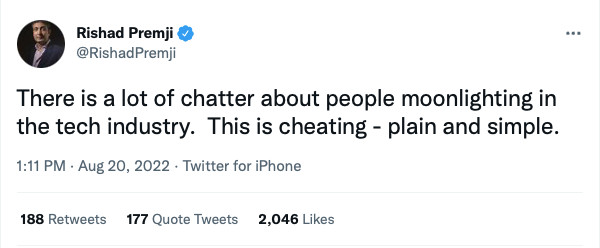[From Unsplash]
Good morning,
Just how we grow up to be the kind of people we are is the subject of investigation from lenses of all kinds. And one of our favourite investigators is the neuroscientist Robert Sapolsky who describes in his lovely book Behave how most of us begin our lives as creatures with empathy and end up as the I-don’t-care types.
“Young kids’ empathy doesn’t distinguish between intentional and unintentional harm or between harm to a person and to an object… This is also when kids first distinguish between self- and other-inflicted pain.
“More sophistication—by around age seven, kids are expressing their empathy. By ages ten through twelve, empathy is more generalised and abstracted—empathy for ‘poor people,’ rather than one individual (downside: this is also when kids first negatively stereotype categories of people). There are also hints of a sense of justice. Preschoolers tend to be egalitarians (e.g., it’s better that the friend gets a cookie when she does). But before we get carried away with the generosity of youth, there is already in-group bias; if the other child is a stranger, there is less egalitarianism.
“There is also a growing tendency of kids to respond to an injustice, when someone has been treated unfairly. But once again, before getting carried away with things, it comes with a bias. By ages four through six, kids in cultures from around the world respond negatively when they are the ones being shortchanged. It isn’t until ages eight through ten that kids respond negatively to someone else being treated unfairly. Moreover, there is considerable cross-cultural variability as to whether that later stage even emerges. The sense of justice in young kids is a very self-interested one.
“Soon after kids start responding negatively to someone else being treated unjustly, they begin attempting to rectify previous inequalities (‘He should get more now because he got less before’). By preadolescence, egalitarianism gives way to acceptance of inequality because of merit or effort or for a greater good (‘She should play more than him; she’s better/worked harder/is more important to the team’). Some kids even manage self-sacrifice for the greater good (‘She should play more than me; she’s better’). By adolescence, boys tend to accept inequality more than girls do, on utilitarian grounds. And both sexes are acquiescing to inequality as social convention—‘Nothing can be done; that’s the way it is.’”
Compelling, isn’t it?
FF Exclusive: To moonlight or not
More than two weeks ago, Swiggy set the cat among the pigeons when it launched a moonlighting policy that allows employees at the firm to take up a side gig. This was unheard of and it was inevitable people would take notice. While employees applauded the move, Rishad Premji, chairman at Wipro took to Twitter and slammed it.

How do we decode these contrasting mindsets? We asked this of TN Hari, co-founder at the Artha School of Entrepreneurship. In a short post on Founding Fuel he wrote that “It has not been uncommon for services companies to bill their employees to multiple clients or use part of their time on activities unrelated to their clients’ interests. Because of rampant misuse, the underlying relationship is based on distrust, and clients have gone to extraordinary lengths to create mechanisms that prevent abuse.
“Let’s now take this a step further. When a client pays a services provider, like say Wipro, for 8 hours of an employee’s time, is it fair for Wipro to prevent that employee from doing what she wishes to do beyond the 8 hours? Even in outcome-based contracts, is it fair for a company to say that their employees are not allowed to do what they want to do in their spare time? Even after returning home from work, is an employee not allowed to indulge in her passion for painting and putting up her paintings for sale at an art gallery? Will Wipro determine what she does over the weekend and in her time-off? Does this constitute moonlighting?
“The common argument that an ‘employee has voluntarily signed up for these terms’ just does not cut ice.”
Hari has a point.
We’re going one step further and plan to do a deep dive into the theme. May we urge you to join us in what promises to be a compelling conversation?
Dig deeper
Moonlighting or an old fashioned mindset?
The IRCTC data brouhaha
Last week, there was heated debate after media reports emerged that the Indian Railways Catering & Tourism Corporation (IRCTC) has floated a tender to sell passenger data that include name, age, journey details and even the login ids and passwords. Coming on the back of news that the government has withdrawn its plans to implement a Personal Data Protection Bill (PDP) that had been in the works for a long time and introduce a new one, this sounded alarming. Whatever is going on? Over the weekend, we started to engage with people who are tuned into the ecosystem and picked up some interesting bits of information.
This included arguments that targeting IRCTC exclusively is unfair. It followed a process to invite vendors to monetise the data it is sitting on because it does not possess the capabilities to monetise the data. But data is what every e-commerce company, large and small, collects from people. To do that, they use cookies to offer people personalised information feeds and ads. This is shared with third parties as well. What others do surreptitiously, IRCTC placed in the public domain.
How is any society to deal with a problem such as this? Either you ignore it, or choose to tackle it head-on. Tackling it head-on involves creating guardrails such as a Personal Data Protection Bill. While India started work on this a few years ago, technology has come to a point where even if data is anonymised, machine learning algorithms are now sophisticated enough to decode patterns and identify people.
So, India is at work to unveil a new framework that does not allow algorithms to freely access data the way it is accessed now. Not just that, a mechanism is being put in place where people who choose to share their data will be compensated for what they share. As things are, data is scraped by companies off people. And entities that own the most data benefit the most. Why should it be that way?
We are told these new protocols will be unveiled later this year and will show the world what an altogether new data protection regime could look like. This is a space we are watching closely.
We’ll be hosting conversations as well on the theme and we’ll keep you posted. Watch this space.
Dig deeper
IRCTC to monetize your data (Livemint)
Why the government has withdrawn the PDP (Indian Express)
Do not dance, Basanti

(Via WhatsApp)
Warm regards,
Team Founding Fuel


